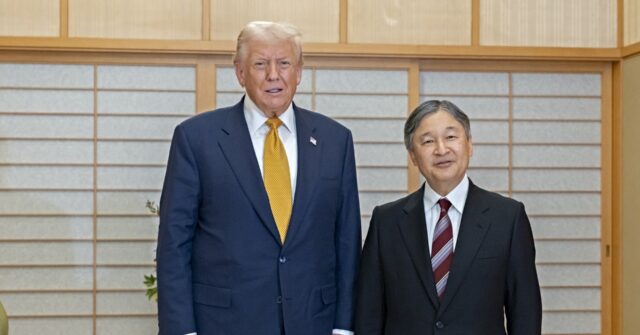Copyright maltatoday

The International Chamber of Commerce (ICC) tribunal ruled the 2015 concession agreements for the management of three Maltese hospitals were void from the outset, stating the public–private partnership never had legal effect. Because the agreements were void, the tribunal found that neither party could rely on or terminate them, and that the proper remedy was restitution, returning both sides to their original positions before the concession was signed. Steward’s claims for contractual damages and termination payments were rejected in full, while Malta’s counterclaims for recovery of public funds were partially upheld. The findings were detailed to the press in a briefing held on Friday afternoon, after government sought legal advice from its lawyers. Justice Minister Jonathan Attard and government’s lawyers explained how the tribunal was composed of Michael W. Bühler (presiding arbitrator), David Kavanagh, and Cecilia Carrara. The arbitration stemmed from a 2015 Services Concession Agreement under which the government granted Vitals Global Healthcare (VGH), and later Steward Health Care, the right to manage and redevelop three hospitals: St Luke’s Hospital, Gozo General Hospital, and the Karen Grech Rehabilitation Hospital. The project was intended to modernise public healthcare infrastructure through a public–private partnership (PPP). However, years of controversy followed amid allegations of mismanagement, unfulfilled investment commitments, and irregularities in the tendering process. Following a 2023 ruling by Malta’s Court of Appeal that rescinded the concession, Steward initiated arbitration proceedings under the ICC Rules, seeking compensation for alleged government breaches and expropriation. The government in turn, counterclaimed, asserting that the concession was never legally valid and that Steward had benefited improperly from public funds. Lawyers explained the state was represented as a whole, with all court decisions over the case and all three National Audit Office (NAO) reports on the concession included in argumentation. The tribunal issued multiple procedural orders addressing jurisdiction, document production, confidentiality, and security for costs. The case involved extensive expert evidnce from both sides on valuation, EU state aid, and Maltese civil law. An evidentiary hearing was held in Paris in May 2025, after which the tribunal conducted a virtual Q&A session before closing the proceedings in June 2025. The ICC Secretariat extended the tribunal’s time limit for the award to November, allowing the three-member panel to finalise its reasoning in what became one of Malta’s most complex commercial arbitrations. What the ICC tribunal determined In its final award on 3 November 2025, the tribunal held that the concession and its related instruments, including the Healthcare Services Delivery Agreement, Labour Supply Agreement, and Emphyteutic Deed, were legally void from inception. The judgments of the courts on the case initiated by Nationalist MP Adrian Delia had “res judicata effect”, meaning they were final and binding on the arbitral proceedings. The concession’s termination in 2023 by both Steward and the government was legally irrelevant, since the contracts themselves had never been validly formed. It also ruled Steward’s claims for contractual damages, including alleged lost profits and termination payments, were dismissed in full. The government counterclaims for restitution were partially upheld, with the tribunal finding that both sides must restore their respective benefits received under the void agreements. In practical terms, this means that any sums paid or advantages gained under the concession must be unwound “as far as possible,” restoring the parties to their original positions prior to November 2015. Although the Maltese government prevailed on the central legal issue, the tribunal noted that “no clear winner emerges.” It considered the proceedings unusually burdensome and acknowledged partial success for both sides on procedural matters. Consequently, the tribunal ordered that each party bear its own legal costs, while the arbitration costs were divided in proportions reflecting the parties’ respective degrees of success and conduct. What were Steward’s claims? Steward raised several claims in the arbitration proceedings. It argued it had the right to terminate the concession agreement, citing—among other reasons—the judgement in the Delia case, where the First Hall Civil Court had rescinded the contracts. It also claimed it was entitled to a termination payment of €100 million. Steward also sought reimbursement for its outstanding loan with Bank of Valletta. These claims were eventually quantified at around €148 million. Throughout the proceedings, Steward resisted government’s argument that the contracts were null and void as pronounced by the Maltese Courts in the Delia case. It maintained until the very end that the contracts remained valid and enforceable, and that it was owed a €100 million termination payment. Did the Daphne Caruana Galizia Foundation formally intervene in the international arbitration? According to a fact sheet provided by government, amicus briefs in international commercial arbitrations are exceptionally rare, and arbitration tribunals typically do not admit third parties to submit such briefs in commercial arbitrations between two contractual counterparties. “We understand that it may in fact have been the first case before the ICC where a third party sought to intervene. The Foundation did make a submission in the international arbitration. However, the Tribunal did not allow the submission to form part of the record because Steward objected to it. Government did not object to the admission of their submission,” it read. Did key political figures testify? The ICC tribunal’s final award makes several observations about key political figures involved in the hospital concession but stops short of assigning any new findings of misconduct. The tribunal noted that while the case centred on legality and contract validity rather than individual wrongdoing, no testimony was heard from senior political decision-makers who had overseen the concession. These included: former minister Konrad Mizzi, Chris Fearne, as well as senior officials Ronald Mizzi, Joseph Rapa, and Edgar Borg. The tribunal remarked: “Given the substantial sums at stake in this arbitration, it might have been expected that testimony would be provided by those with the most direct knowledge of the facts.” However, it found that the absence of these witnesses did not materially affect the outcome because the case’s central issues were legal, not factual, and the documentary record was sufficient for its findings.



